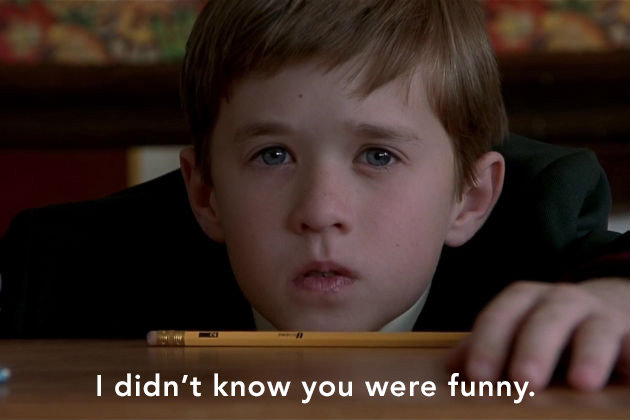Estimated reading time: 12 minutes.
I noticed John Paul, one of our volunteers, looked nervous in his conversation with a student in front of our poll table. I walked up and started listening so he could get help if he needed it. John Paul quickly asked me for my take, and I started asking questions to try to figure out what the other student’s view was. “Brent” had signed “Yes” to the question “Should 20-Week Abortions Remain Legal?” I asked:
Tim: Why do you think 20-week abortions should be legal?
Brent: It’s a woman’s right to live her life the way she wants to.
Tim: Do you think there should be any restrictions on abortion at all? What do you think of, say, a 35-week abortion?
Brent: Oh I’m definitely opposed to 35-week abortions.
Tim: You are? Aren’t you restricting women’s rights to live their lives the way they want to?
Practical Dialogue Tip #1: Turn the Tables on Pro-Choice Rhetoric

A great deal of pro-choice rhetoric uses the kind of language that does not very naturally allow room for any restrictions on abortion. For example, any bodily rights rhetoric is going to suffer from this problem. For instance, you can’t say “my body, my choice” to only justify early abortions, because late-term fetuses are still located in her body. In order to justify early abortion without justifying late abortion, you need to argue that the late-term fetus is more valuable than the early-term fetus.
When I notice these kinds of rhetorical mistakes, I will frequently “turn the tables” on them in a gracious way. This is often an extremely weird experience for the pro-choice person because they’re used to the rhetorical power of “my body, my choice” working in their favor, and all of a sudden they find themselves having to argue against it. This tactic would work very well in debates, but that isn’t how I use it. Rather than merely trying to score rhetorical points, I’m hoping to accomplish two things:
- I want to help the pro-choice person learn to think more clearly about their rhetoric. It often is not nearly as powerful as they feel like it is, and making them answer the same rhetoric can help them to understand this.
- I want to force them to clarify their position. Dialogues only improve when arguments become more clear, and encountering this kind of inconsistency in their position forces people to either shift to an argument with more substance or clarify why they think their rhetoric doesn’t work against their own view.
Brent: No, because before 20 weeks, the fetus isn’t viable.
Tim: You’re right about that. I’m trying to understand your view so help me out here. Why do you think viability is important?
Practical Dialogue Tip #2: Use Filler Sentences to Add Clarity
“Filler sentences” are the short sentences you say between your substantive sentences that serve to clarify why you just said what you did. The most common example is when I tell people that I’m trying to understand their view, but I’m struggling. If I’m having a hard time understanding their view, I sometimes feel frustrated by my own inability to understand, and if I don’t clarify why I’m frustrated, the person might feel like I’m angry with them. By telling them I’m having a hard time understanding their view, I’m inviting them to work with me, rather than making them feel like I’m on the attack.
In my conversation with Brent, I used this filler sentence because it could have come across like I was asking him this “why question” as a debate tactic to shift the burden of proof on him. While in this case that’d be a legitimate move (at least at a logical level), it wasn’t what I was trying to do. I wanted to understand his argument before arguing against it, so I used a filler sentence to communicate that I was attempting to clarify, not pin him into a corner.
Brent: Because before viability, no one else can take care of it. After viability, someone else can, so it isn’t restricting women’s lives.
Tim: It doesn’t sound like you think the fetus is a non-person until it’s viable. It seems more like you’re concerned about the effect the fetus is having on the woman. Am I on the right track?
Brent: Yeah that’s right. If you outlaw abortion before viability, it limits the woman’s options because no one else can take care of the baby. That isn’t fair.
Tim: Brent, I definitely agree that for the first twenty weeks of pregnancy, no one else can take care of the child and that limits her opportunities. I wish we had some kind of Star Trek technology to beam the fetus from the woman’s body into an artificial womb it could survive in. I’m not trying to limit her opportunities, I just don’t want her to kill the kid. But the fact that no one else can care for her child seems to me more like a reason that she has an obligation to do so, even though it limits her opportunities.
Brent: What?? No way.
Tim: Have you seen the Pixar movie Up?
Brent: Haha, yeah.
Tim: Great. Remember the scene where Carl finds Russell on his porch after the house has lifted off?
Brent: Yeah.
Tim: What if instead of letting Russell inside, Carl decided that taking care of the child would limit his opportunities too much, so he kicked him off the porch. Would that be his right?
Brent: Yeah, I guess so. It is his house.
Tim: (pause) Really? It’s a ten-year-old kid. You really think Carl has the right to murder him?
Brent: Well, I guess he could just lock the door. Then it isn’t his fault.
Tim: But one minute later in the movie they go through a big storm and the house shakes like crazy. Russell would certainly fall to his death.
Brent: Yeah, but Carl wouldn’t be responsible. It’s not his fault a storm would come.
Tim: If he locked a kid on the porch of a flying house and then the kid fell off, I’d say he’s culpable. Even if it’s not murder, it’s at least some kind of negligence. But surgical abortion isn’t anything like just locking the fetus out of a uterus. It’s actively dismembering it. Couldn’t we at least agree that Carl doesn’t have the right to grab a shotgun and shoot Russell?
Brent: Well, yeah, I guess that’d be wrong.
Tim: Would it just be morally wrong, or should he be arrested for murder?
Brent: He should be arrested.
Tim: I totally agree. Hey, it’s really hot standing in the sun right here. Could we move under the tree?
Brent: Sure.
Practical Dialogue Tip #3: Sit Down
After my last few college outreach days, I now have a goal in just about any dialogue about abortion: find a way to non-awkwardly get us from a standing position to a sitting position. The difference to the atmosphere of the conversation is night and day. Even if I’m being really nice, two people standing in a plaza arguing with each other is not an optimal environment for people to change their views. Friends don’t argue about serious things for two hours while standing.[Tweet that!] They sit down on chairs, or in the grass or something. I want the person I’m talking with to feel comfortable, to feel emotionally safe to reconsider their views, and I have become absolutely convinced that sitting down immeasurably helps. It feels less like we’re two strangers and ideological opponents, and more like we’re new friends thinking through things together.
Tim: [After we sat down] So it seems like there is a big difference between Carl just not helping Russell and shooting him with a shotgun. That matters to me because abortion isn’t merely “not helping” someone, it’s killing them. Have you ever seen pictures that show the results of abortion?
Brent: No.
Tim: I have some in this brochure. Would you be willing to look at them?
To learn more about how we use abortion images, click here.
Brent: Sure.
Tim: [After discussing abortion images and how abortion procedures are done] It seems like in this story Carl doesn’t have the right to murder Russell, even though it’s not Carl’s fault that Russell is on his porch and now he has an annoying child to take care of for a while. But how much more obviously wrong would it be if Carl invited Russell to come over before the house lifted off? Wouldn’t Carl be even more responsible then?
Brent: Yeah, but so what?
Tim: Well, in most cases of pregnancy, two parties willingly engaged in an act that they knew might result in the creation of a needy child. Given that, it seems even clearer that they owe that child something minimal, something like taking care of the child until someone else can, and certainly not killing the child. In a similar way, Carl is even more obligated to not shoot Russell with his shotgun if he invited Russell to come to his house.
Brent: Yeah, but what if Carl just, like, went for a walk. Sometimes, but not very often, if you go for a walk a child might just follow you home. So if he went for a walk, knowing that might happen, and Russell follows him home, is he responsible for the child now?
Tim: That’s a great question. In that situation he doesn’t have the right to shoot the kid, but it also isn’t really his fault that the kid followed him. But sex is totally different than that. There is nothing intrinsically linked between going for a walk and having a child following you home. The one isn’t really the cause of the other. But the creation of children is intrinsic to sex. Sex causes the creation of a child. Sometimes sex happens without creating a child, but anytime a child is created as a result of sex, sex is the cause.
Brent: I guess. It just seems like if we outlaw abortion that limits people’s options. Think of people’s opportunities as boxes. Someone with a lot of opportunities has a big box, and someone with really few opportunities has a small box. I just want people to have big boxes.
Tim: That’s a great way to describe that, I like that. I’d like to help people have bigger boxes too. Again, if we could just Star Trek beam the child into an artificial womb it could survive in, that’d be awesome. I guess the question is, given that we don’t have the Star Trek option, are we justified in killing a child in order to make our box of opportunities bigger? So for instance, John Paul here [the pro-life volunteer] is just an awful person. [John Paul and Brent laughed] He’s horrible and mean, and he makes terrible life choices, isn’t that right?
John Paul: Yes, always.
Tim: Right. What if John Paul here had a big box, and he thought “Hey, you know what would be the best thing ever? BABIES!” Typical impulsive John Paul decision. So then he finds a girl and has a kid. A couple of years goes by and he realizes, “Wow, my box is so much smaller than it used to be. I need to make this box bigger.” Can he kill his two-year-old?
Practical Dialogue Tip #4: Be Funny
How to do this will vary from person to person, but I will take almost any opportunity to inject good-natured humor into a dialogue (obviously I don’t do this if the person is emotionally struggling). It helps the atmosphere to be positive and gives the dialogue longevity.
One of my regular tricks for injecting humor is that when I give thought-experiments, I’ll find a pro-life volunteer or an ERI staff member to pick on, and they’ll become my verbal punching bag. Obviously I only do this with people that are good-natured and not easily offended. In my conversation with Brent instead of just giving a standard thought-experiment, I made up a story about how my pro-life friend was a terrible person. We all had a good laugh together and it became a running joke for the rest of the conversation.
Another trick I use in many conversations is my atypical way of asking if they think something should be legal. Instead of just asking “should X be legal,” I’ll say “Imagine next year you were elected supreme dictator of the universe. You get to make all the laws. Suppose you’re hanging out in your throne room and one of the peasants walks in and asks you if they can do X. What do you say?” Some people don’t think it’s funny, but most of the time it gets at least a couple of chuckles and a remark about either how great or how terrible the world would be if they were the dictator. Sometimes I’ll return to the throne room for the rest of the conversation whenever I have another question about whether something should be legal. “Another peasant says ‘Supreme Dictator Brent! I want to do Y, here’s my justification. Can I do Y?’”
You don’t have to be original. I recycle some of the same outreach jokes multiple times in a day (they’re new to the person I’m talking to!). I even use jokes from our seminar. Find out what works for you, and add humor when you can. It helps the person to feel like you aren’t their enemy.
Brent: No way, he can just put it up for adoption.
Tim: But what if he doesn’t have that option for a while? Suppose he calls the adoption agency and tells them, “You guys have to take my kid, or I’m going to kill him,” and they say, “We’re sorry, we’re all jammed up, there’s a war going on or something, we aren’t going to be able to take the kid off your hands for you for about nine months. After that, we’ll take him, so just hang in there for nine months.” Now does he have the right to kill the kid?
Brent: No, I guess not. But it still seems really unfair.
Tim: I have a guess about something that’s going on in the background for you. Do you think people have a fundamental right to have sex?
Brent: Yeah, I do. It’s like, one of the most important things in life.
I have suspected for a while that the belief in an inalienable right to sex is an unstated part of many pro-choice people’s views. I’ll share this part of my conversation with Brent in the last installment of this two-part series.
Note: Much of Brent’s argument functioned like a typical bodily rights argument, in that he was arguing for the right to abortion independently of the status of the unborn. Most of the time when pro-choice people do this, they appeal to bodily autonomy instead of something like unlimited opportunities. I pulled in the Up story from the paper Steve Wagner of Justice For All wrote on behalf of a philosophy team that included me and Josh Brahm. While my views have evolved a bit since we published the paper two and a half years ago, I still think it’s the best pro-life essay currently out there on responding to bodily rights arguments. Read the paper De Facto Guardian and Abortion here or download the audio of a speech Josh Brahm gave on the same topic.
Please tweet this article!
- Four Practical Lessons in Dialogue from my Conversation with Brent
- Practical Dialogue Tip: Turn the Tables on Pro-Choice Rhetoric
- Practical Dialogue Tip: Use Filler Sentences to Add Clarity
- Practical Dialogue Tip: Sit Down
- Practical Dialogue Tip: Be Funny
- Friends don’t argue about serious things for two hours while standing.
The post Four Practical Lessons in Dialogue from my Conversation with Brent originally appeared at the Equal Rights Institute blog. Subscribe to our email list with the form below and get a FREE gift. Click here to learn more about our pro-life apologetics course, “Equipped for Life: A Fresh Approach to Conversations About Abortion.”














Please note: The goal of the comments section on this blog is simply and unambiguously to promote productive dialogue. We reserve the right to delete comments that are snarky, disrespectful, flagrantly uncharitable, offensive, or off-topic. If in doubt, read our Comments Policy.